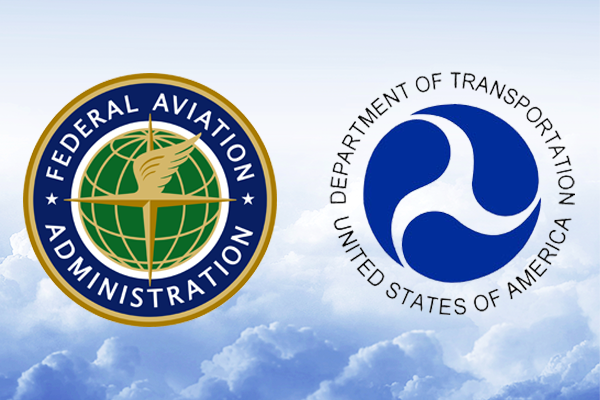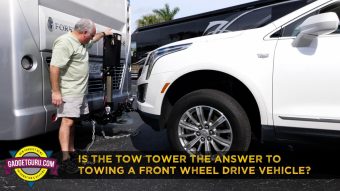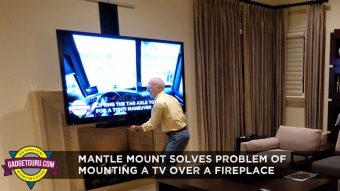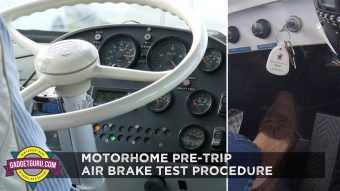FAA and DOT Announce Recreational Drone Registration Process – Gadget Guru Editorial
December 14, 2015
The following contains my notes on the DOT/FAA Press Conference highlighting the promised registration process for unmanned aircraft. My editorial opinion appears at the end of this piece.
Here’s the announcement of the press conference with personal references removed:
WASHINGTON – Please join U.S. Transportation Secretary Anthony Foxx and Deputy Federal Aviation Administration (FAA) Administrator Michael Whitaker for an announcement about the aircraft registration process for owners of small unmanned aircraft systems (UAS). A Registration Task Force delivered recommendations to FAA Administrator Michael Huerta and Transportation Secretary Anthony Foxx on November 21, 2015.
When: Monday, December 14, 2015 at 9:30 a.m. EST
Here’s my notes taken during the call and my Editorial Commentary will follow:
Background
On October 19th, during a joint press conference with the FAA and the DOT it was announced that a new “streamlined registration process” would be identified by November, 20th and be implemented mid-December. It’s now December 14th and the authorities have been fairly silent on this plan to this date and just a few days ago announced it would reveal the aircraft registration process for owners of small unmanned aircraft systems. The following are my notes from this conference call:
Press Conference
U.S. Transportation Secretary Anthony Foxx:
In late September, an ambitious goal was set to have rules for the registration of unmanned aircraft in place by Christmas. These rules for registration will apply to unmanned aircraft weighing between .55- and 55-pounds. Anyone who purchased an unmanned aircraft prior to December 21, 2015 will have 60 days to register their aircraft. Those who purchase after December 21, 2015 must register their aircraft prior to the first flight.
The cost to register is $5 for a three year period and it covers all of the aircraft owned by the individual. For verification purposes, a credit card will be used for payment. However, those who register within the first 30 days will receive a credit for this fee.
Secretary Foxx made the point that unmanned aircraft operators are aviators and operating safely is the important factor. He added that ongoing efforts will be made to encourage innovation in the airspace. It was also stated that rules may be ratcheted up or down.
Deputy Federal Aviation Administration (FAA) Administrator Michael Whitaker:
Deputy Whitaker stated the goal is to safely integrate unmanned aircraft into airspace. Until recently only trained personnel were allowed to use the airspace and that as soon as operators of unmanned aircraft begin flying, they are considered to be pilots. He added the FAA is working quickly to spread the safety message and is seeking new opportunities to educate unmanned aircraft operators.
Deputy Whitaker was a bit more descriptive in the weight minimums for registration and stated that the registration is required for unmanned aircraft weighing 250grams (approximately one-half pound), up to models weighing 55 pounds. Information for unmanned aircraft weighing more than 55 pounds can be Found Here.
The FAA website for registration will go live on Monday, December 21, 2015. It’s currently in the final testing phase and the website address was not revealed during this call. Deputy Whitaker reinforced that registration during the first 30 days will be free (but a credit card will be charged and then credited) and the fee is $5. This fee is covers three years of registration and covers all owned aircraft by the registrant. Again, the point of education was reinforced as being a paramount goal of this initiative and that operators need to understand that flights need to take place below 400 feet, maintain a visual line of sight, stay away from manned aircraft and away from crowds. Also mentioned was the need to stay at least five miles away from airports, but he left it open that if the operator was operating within this barrier, to contact the airport.
End of Press Conference
Q & A Session
Note: These questions are paraphrased:
ABC News: Are the rules designed more for education or enforcement?
Response: It’s been found that people flying near airports have done so due to ignorance of the rules. These rules are designed to connect the aircraft with the owner.
NPR: What happens when a non-registered owner is located? What are the levels of enforcement?
Response: A broad spectrum of enforcement options are available. For blatant violations both civil and criminal options are available.
CBS News: What information will be required upon registration?
Response: The owner’s name, physical address and email address. A credit card will be required to verify identity. The registration number will need to be marked on the vehicle.
WSJ: How will you make sure people are actually registering? Will Law Enforcement personnel be involved?
Response: Failure to register an aircraft may result in regulatory and criminal sanctions. The FAA may assess civil penalties up to $27,500. Criminal penalties include fines of up to $250,000 and/or imprisonment for up to three years. The FAA/DOT will be working closely with Law Enforcement personnel around the country who are on the ground and can interface with users.
Question: If flying in a park, how does the user prove registration?
Response: The registration number will be marked on the aircraft and either a printed or electronic version of the registration will need to be provided. (It was implied this registration could be on a phone).
USA Today: What is the website address?
Response: The website is still in beta and is not being released yet. It will also be accessible via a link on the FAA.gov website.
Question: Does the FAA have the authority to do this?
Response: Yes as this is an aircraft registration and the law is long standing.
Washington Post: What happens with resales that occur on the secondary market?
Response: New owners will have the ability to register and deregister aircraft on the new website.
CNN: Is this purely an honor system? Will retailers be assisting?
Response: The current task force includes both retailers and manufacturers and everyone involved is committing to making this work. They will continue to work with retailers after it’s up and running and possibly at point of sale.
Question: Is it up to the individual to initiate the registration?
Response: Yes, initially and it will be accomplished through the website. There could be more options for registration later.
LA Times: How is this going to work for kids?
Response: Aircraft owners must be 13 to register. Under that age, parents must register and supervise usage.
GQ: Why are large drones not a part of this registration system?
Response: For purpose of registration, it’s divided between large and small aircraft. Large drones have an existing system for registration.
Question: Will there be a penalty for not registering?
Response: There will be Statuary penalties.
Politico: How you plan to inform the public of the registration process and penalties? How do you convince users to register this late into the season?
Response: This is a challenge and are trying to get the message out through the media and social media. There are a few initiatives in place. (Example provided): NFL teams will be running PSAs on scoreboards that highlight the know before you fly rules. Some manufacturers are including inserts in aircraft boxes and in the coming weeks the packets will contain info on the registry. Stakeholders (read: manufacturers and retailers) have an interest in educating consumers.
Cox Media: Are there plans in the future to work with retailers and manufacturers that say you must register?
Response: Yes. Retailers and manufacturers have been cooperative. After the website is up and running they will be working with retailers for point of sale materials and with manufactures to put the message on the physical box.
End of press conference.
During the conference, the FAA released registration FAQ’s that can be Found Here.
Editorial
Let’s face it, due to the actions of a few irresponsible copter owners and the number of videos appearing online that blatantly display various behaviors, some sort of organized registration method was sure to come as while offending copters can be located, matching that specific copter with its owner can be difficult it not impossible. Based on the FAA/DOT October 19, 2015 press conference, the one takeaway point was that registration will create a database accessible to various arms of law enforcement so that if an issue surfaces, the information regarding the owner can be quickly located. Note: My report on that press conference can beFound Here.
Being a copter enthusiasts and one who follows numerous user groups online, there seems to be various opinions about the attention given to the possibility of required registration. While the majority seem to feel that things are fine the way it is, it seems only a few feel that registration may lower the number of irresponsible incidents and that a number of users simply do not feel the need to register.
I’ll add that from those who have posted their feelings on this topic in public forums, there seems to be a bit of frustration of the possibility that the fees required for registration is just another way for the Government to lighten the users’ checkbook. It’s my opinion that the associated fees for registration are more than reasonable…especially when it’s factored that one registration can cover multiple copters. I’ll add that it seems that the fee may only have been added and that a credit card is required with the sole purpose of assisting in verification of the true owner as it surely, at least initially, won’t cover the cost of this regulation and the costs associated with potential enforcement…at least not upfront.
I’m sure my opinion will not fall within the area of the vocal majority as I see registration as a logical and prudent move forward for this industry. After all, just about everything we do these days comes with a fee. For example, you can buy a cell phone in a store and you can use it to call 911 at no additional charge. But if you want to use it to call your friends, you need to pay the associated fees. The same holds true with watching TV programming. While you can purchase an antenna and watch over the air programming at no additional costs, if you desire an enhanced lineup, yes, you’ll need to pay a fee for this privilege.
So, how does this apply to copters or those devices that others call drones? Simply stated, if you want to fly a copter that weighs more than one-half pound and is capable of flying outdoors and could possibly endanger aircraft or the privacy rights of others, then it make sense that it should be registered as if a peril were to occur, the offender can be quickly located. Yes, while flying at safe altitudes is the obvious concern, privacy rights are an important factor too. Just imagine the thoughts of those who are not involved in this activity and what goes through their minds when a low flying, camera-equipped copter flies over their property? Is this a violation of their privacy? While I’m not going to attempt to play “lawyer,” I will simply summarize and say that as copter users, we need to be respectful of the privacy of others. If a copter is flying low enough over private property, with this form of registration that requires the number to be visible on the copter itself, a simple photo can provide documentation of the owner. In my opinion, this is a much better solution than the few who have chosen to attempt to shoot a personal copter out of the sky.
In reference to the fees associated with registration, well, this is now a reality and it shouldn’t surprise anyone as implementing and overseeing this type of program cost money and there’s no reason it should come from the pockets of those who are not participating in this activity. If you choose to fly, it comes at a cost, and that cost just became just a bit higher…a whopping $1.67 per year. I can only hope the method the Government has chosen for registration will operate properly and provide a simple, hassle-free method of registration that makes it easy for responsible copter owners to follow the rules and that it is secure so that it protects the gathered information.
There’s one other factor that while not discussed is an important one. And that’s the possibility that the devices we enjoy flying recreationally could possibly be used as a tool by those who wish to use them outside if its intended purposes. Yes, there’s already units on the market that can be purchased in stores or online that allow for larger payloads and with this comes the possibility they could be used for destructive purposes. In my opinion, having the Government knowing who is buying these copters is not a negative factor. But in order for this to be at least somewhat effective, this registration will need to be handled and verified prior to purchase and it seems that using the credit card data for verification is a small price to pay. As an example, like we saw in San Bernardino, one person could purchase the device and another could use it and while this registration process will allow the Government to locate the purchaser, by that time, it may be too late. But it does provide a trail for law enforcement and in my book, that’s not a bad thing.
I’ve spent my life following technology and just a few years ago if you would have told me that we could walk into a retail store or press a few online buttons and purchase a reasonably priced flying machine that has the ability to capture gorgeous aerial 4K images and videos via a remote controlled device, I may not have thought this is a reality. The unmanned aircraft industry has exploded at warp speed and this technology has matured much quicker than many would have imagined. Well, it’s here now and I fully understand why the Government needs to take some sort of action. Combine that with current events and nobody should be surprised that the Government is simply asking us to take a few minutes to register our flying machines and are doing so at a very reasonable price.
Will this stop irresponsible behavior or destructive usage? Probably not. But will it provide law enforcement an additional tool in keeping us safe? My answer is: Yes. Will it extend the life of the hobby as we know it today? Yes!
One factor I’ve mentioned to other copter enthusiasts is this: There’s more people who don’t want to see copters in the air than there are those who fly them. Since we live in a “majority rules” society, let’s respect the freedom to fly our copters and do so in a safe and respectful manner.
Let’s face it, there’s those who want to fly higher, faster and further and while some of those uses may be legitimate, it does open the door to a number of additional uses that go further that the intended purpose of the copters we enjoy flying.
For this reason, I fully understand the efforts of the DOT and FAA and am appreciative that stronger rules have not been implemented.















